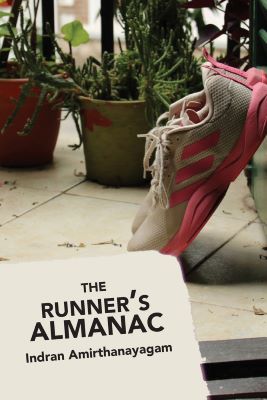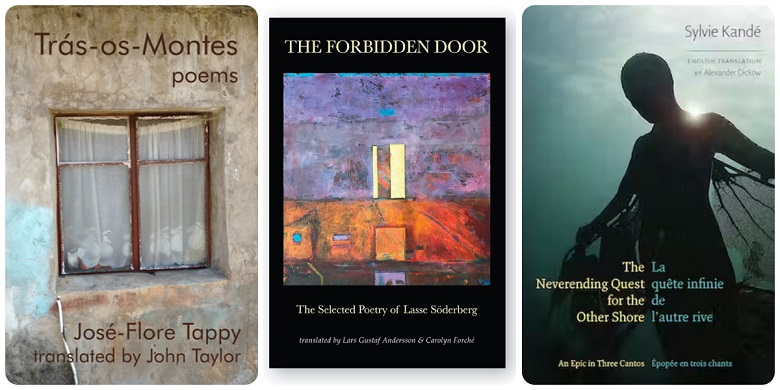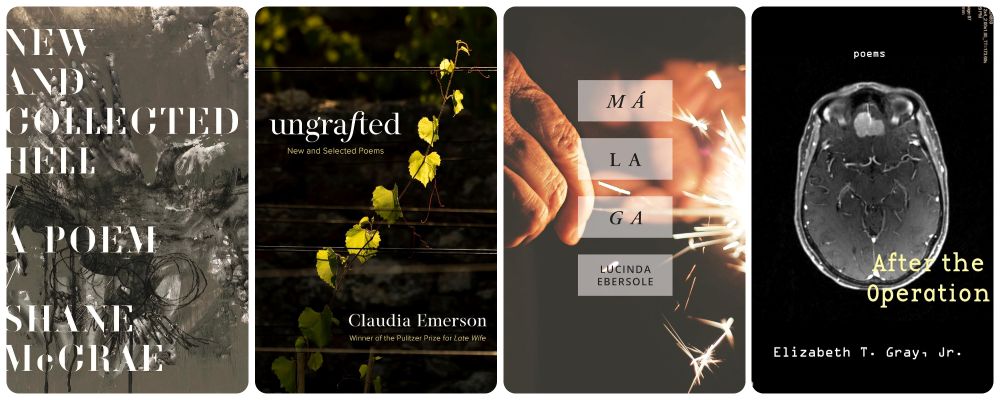Indran Amirthanayagam’s new collection embraces the abundance of the human condition.

“Do not go against the need
and desire to be one…”
So begins Indran Amirthanayagam’s The Runner’s Almanac, a work of lyric resonance and yearning that’s deeply personal, transcendentally universal. A citizen of the world, the proudly progressive Amirthanayagam was born in Sri Lanka and raised in London. He now makes his home in the United States, where he worked many years for the State Department. He is the author of nearly 30 volumes of poetry — one hesitates to give an exact number, as he always has one or two books in production — and writes in English, Spanish, French, Portuguese, and Haitian Creole.
Much of his work is grounded in the political: poetry of witness and social commentary. The poems in this collection bear witness as well, albeit of a different sort, the witness of the heart, of the soul. Unlike his earlier collections — such as Uncivil War, which chronicled repression by the Sri Lankan government of Tamil society and culture, or Ten Thousand Steps Against the Tyrant, composed during the heat of America’s 2020 elections and the height of the pandemic — The Runner’s Almanac is a compendium of love poems. Simple as that. Complicated as that.
The poet writes in “Strider” of “atonement, of salvation, of bliss at the miracle / of life popping out from the dark...where my heart had foundered.” He often employs direct, concrete language to convey complex emotions, as in “A Thought, A Tortoise”: “Without you I count / starlings passing over / the field…Lay on the grave / a bunch of fresh roses…”
Yet love persists, Amirthanayagam contends, in spite of everything, and so must words, as he writes in “A Hint of Spice”: “I love you so I cannot stop / my mind from writing / invitations, to come with me…”
To be clear, the personal is never absent from Amirthanayagam’s work. Even when writing from a cosmopolitan perspective as a champion of humanity, he brings the reader back to the intimate. In “Voting Song,” he writes, “I am going to take / Mother to the polling / station. This may be / her last chance to vote.” And in “Late Night Olive Oil,” he insists that “Decline and death are prohibited,” though, of course, these things are inevitable.
If The Runner’s Almanac feels like a departure, perhaps this is due to its open-hearted vulnerability as the poet reveals his longings and examines individual relationships with all their attendant joy and grief. Amirthanayagam aches and strives to hold onto those who slipped away — lost lovers, parents, children — and asks what remains. The abyss is deep; is there a way to avoid diving in?
He writes in “Divine Intercession”:
“I will face this roaring current
just in front, a step forward
but I will not stumble…”
Amirthanayagam speaks of the power of spirit, of mind. True, that spirit may be malicious, but, as he continues in the same poem, “I will not give / him the last word. I will / not be swept away.” Indeed, the poet invokes a higher power, while at the same time extolling the redemptive power of human love.
“I will name everyone who has held / my hands, embraced me, said go ahead,” he declares in “Seeking Light.” And in “God and His Children,” he tells an unnamed acquaintance, “You did not break my heart, / God played his part so I might / learn that my heart is like life / on earth.”
Amirthanayagam acknowledges the transience of all living things and bemoans their inescapable conclusion. Yet he believes in a grace which is transcendent, a marathon that cannot end. And aren’t we all runners, sprinting through this life, this miracle of existence, in spite of everything? He writes in “Guide”:
“...the runner is pulling me
back. Not yet, she says.
Write. Keep running.”
And, I should add, keep reading.
W. Luther Jett is the author, most recently, of Flying to America.

